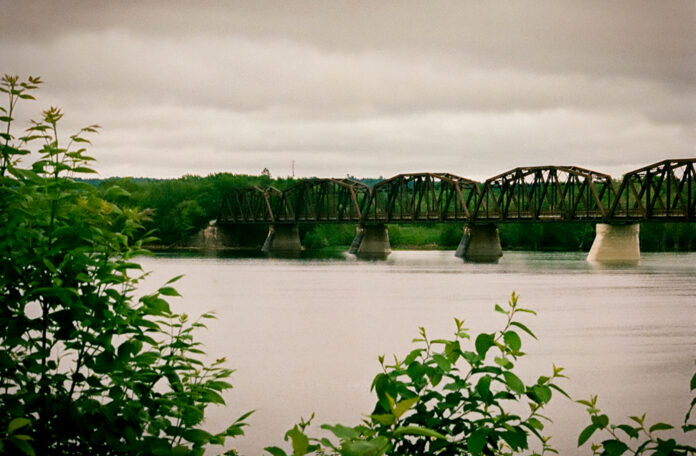

For years, many Indigenous activists and leaders have tried to reclaim the traditional names of their territories.
Such is the case of the Wolastoq, the “beautiful and bountiful river,” which has been at the centre of a major name dispute since 2021, when the Wolastoqey Nation formally requested a name change.
“It’s very key to us because it’s a way of reclaiming our heritage and reasserting ourselves,” said Tanner Augustine, St. Thomas University’s Student Council Indigenous Representative.
“And for the Wolastoqiyik in particular, it is very key because the Indigenous people around here are named after it. The Wolastoqiyik, the people of the bountiful river,” said Augustine.
The river was the focus of a recent film titled My Name is Wolastoq, an Indigenous led project that tells the story from the point of view of the river itself and calls to reclaim the river’s traditional name.
“The people who don’t know what’s going on, they’re just seeing what’s on the headlines,” said executive producer on the film Opolahsomuwehs. “So let’s tell a story of what it’s like to lose your identity and lose a loved one from your nation.”
Opolahsomuwehs’ first language is Maliseet, but as a child she was forced to speak in English, because speaking in her traditional language warranted punishment. She notes this punishment as damaging to her identity.
“I’ve lost some ways. I was given a name that has nothing to do with my culture,” she said. “Because you’re not using the language you use in somebody else’s language, you become this shadow of yourself.”
Just like replacing a person’s traditional name with a colonized name, rejecting the reclamation of the traditional river’s name casts the same shadow.
“[The film] is from the perspective of the river-speak and people will say rivers don’t talk, but we know they do,” she said. “We know that because in our language, we’re all related.”
In August 2023, N.B. Aboriginal Affairs Minister Arlene Dunn said the province would not reinstate the original name, even when asked by Wolastoqey leaders as a step towards reconciliation.
The reasoning provided by Dunn was that it was not feasible for the N.B. government due to the river crossing an international border, complicating the process of renaming it. This decision goes against one of the recommendations made by the Commissioner on Systemic Racism, Manju Varma, who mentioned the importance of traditional names in her report.
Andrea Bear Nicholas, Maliseet professor emeritus at STU and past Chair of Native Studies, said the request to change the river’s name is of cultural importance, yet she states that there are other ways of preserving language and culture that are more pressing.
“I do agree that the Saint John River is central to our culture, our language, our history and our land … but I don’t think changing that name is anywhere near as important as putting all our efforts into making sure babies, young children and school children can speak our language.”
Bear Nicholas has been working at STU for the past 20 years, fighting for Indigenous communities’ right to learn in their traditional languages.
Nonetheless, she has received pushback from the government, as she said they won’t fund these schools. Bear Nicholas believes if this issue is not addressed, there is no path to reconciliation.
“I have nothing to object against returning the name of our river, but I would much rather see people pushing for basic rights,” said Bear Nicholas. “Right now, we do not have equal rights in Canada with francophones or even anglophones, when it comes to language.”
However, Augustine does not believe that pursuing the language and reinstating traditional names should come at the expense of the other, as he argues that traditional names are important foundations for culture.
“It’s a way to look back and build a foundation for years where culture has been hammered,” said Augustine. “By common practices and a good stable foundation, I hope we can regrow instead of going back to what we were. We can go back and keep developing.”
With files from Shannon Munro
